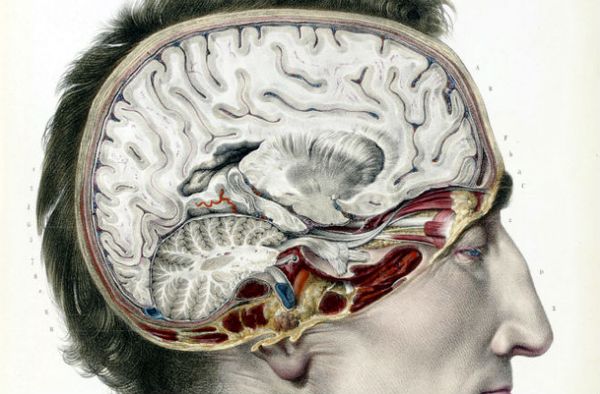
You're walking down a deserted street and suddenly you hear footsteps. Someone might be following you, you think. Because, although the street is quiet, your own footsteps would never register with you — just those of a stranger's. So why is it we can't hear the noises we make ourselves?
Scientists have long known that we are capable of tuning out our own personal noises, but were previously in the dark about how the brain accomplishes this feat, exactly. The results of a new study, published in the journal Nature, aims to amp up our understanding of this phenomenon by focusing on footsteps.
Advertisement
"We wanted to understand how the individual cells in our brains — our neurons — work together to make that happen," lead researcher Dr. David Schneider, an assistant professor with the Center for Neural Science at New York University (NYU), explains in an email. "To do that, we studied mouse brains. And we built an augmented reality system so that when mice ran, we could experimentally control the sounds they heard. We could give them a couple of days with their walking making one sound, then we could unexpectedly switch the sound."
Research was conducted at Duke University's School of Medicine. The scientists soon discovered that when the mice expected their walking to sound a particular way, the neurons in the auditory cortex (one of the main hearing centers of the brain) stopped responding to the noise.
"It was almost like they were wearing special headphones that could filter out the sound of their own movements," Schneider explains. "In contrast, when we played an unexpected sound, neurons in their auditory cortex had large responses."
The scientists soon realized that, as the mice were becoming familiar with the sounds of their own walking, there were some important connections being changed between the auditory cortex and the motor cortex, which is the part of the brain responsible for moving.
"The connections strengthen onto inhibitory neurons in the auditory cortex that are active when the mouse heard the footstep sound," Schneider says. "The end result was that every time the mouse walked, a group of inhibitory neurons were active to create a photo-negative of the sound the mouse expected, which could cancel out the expected sound when it was heard."
Advertisement


